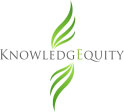CPA study techniques – What is the best way to approach studying and revision?
The minimum recommended time to spend studying is 10 to 15 hours a week. Of course – you might get by with much less. But, the aim of studying the CPA Program is to learn and obtain new skills as part of gainin
g your qualification – not just scrape a pass!! Therefore CPA study techniques are important.
Success = sustained action. That is, a regular activity, even if it’s a few hours a day rather than cramming in 10 or 15 hours over one weekend and then not doing any study for two or three weeks, which does not help with knowledge retention.
Consider the following CPA study techniques:
- CPA study hour
- CPA study day
The idea behind the CPA hour is that you go into the office an hour earlier than you normally would and lock yourself away in a quiet room and do CPA study for an hour. In the morning is when you’re likely to be fresher in the mind and be absorbing a lot, as distinct from the end of the day or at night when you are tired after a day’s work. The CPA day is an extension of the CPA hour idea and instead of a dedicated hour you are dedicating an entire day to CPA study on the weekend. Again, it’s probably best if you can go into the office or a library to get yourself away from the distractions at home.
Plan your study time. There are different approaches to this, but one useful way is to create a timetable (and stick to it) based on the number of pages in each module and the number of days to the release of the pre-seen exam information.
For some subjects like GSL, candidates will receive ‘Pre-seen exam information’ two weeks before the exam. Make sure you finish your study so that you have two weeks to spend analysing this information as it will form the basis of the majority of the marks in the exam. I’ve seen a number of candidates who are trying to learn the study guide and analyse the pre-seen in the last 2 weeks. It doesn’t work!
There are also a number of simple things like, being selective in what you highlight in the study guide. If you do have to refer to the study guide in the exam you need to be able to extract the key point or points on a page and do it very quickly so minimise the amount of highlighting to one or two key sentences on the page.
It’s not just about reading the study guide. It’s about understanding the concepts and then being apply to apply that understanding or knowledge to respond to questions in the exam. Deciding on and sticking to your CPA study techniques will help.
If you want advice on which cpa subjects to take and in what order, see our post below.
Please email me at courtney@keq.com.au if you have questions on this blog or on the structure and requirements of the CPA Program.
Regards,
Courtney
About KnowledgEquity
We are an independent provider of support resources for your CPA studies. We have highly qualified CPAs creating and delivering innovative content including live webinars, video tutorials, PDF resources to download and practice exams.
Courtney Clowes CPA and Russell Clowes CPA are the directors and have many years experience teaching the CPA program, authoring CPA study guide materials and providing expert forum responses to CPA students.
This clip outlines what we do and why we think our CPA support resources will be a helpful CPA revision kit for you, and you will be impressed by our low CPA Tuition Fees:


0 responses on "CPA study techniques for you"